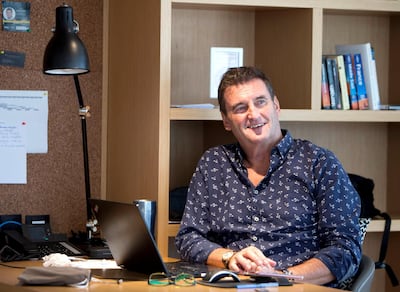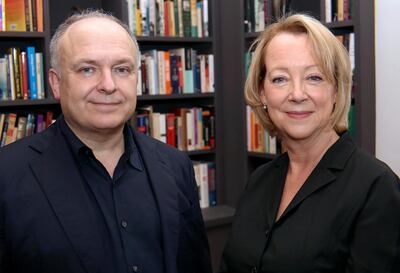As we look forward to living longer than ever, we need to think about how to prepare for an extended working life and how to ensure we stay relevant and earn well for longer.
By 2050, one in six people in the world will be over age 65 (16 per cent), up from one in 11 in 2019 (9 per cent), according to a United Nations report released this year.
Yet few companies worldwide offer assistance to their older workers to keep them employed — meaning it pays to be proactive if you want to carry on working.
More than one in four American workers polled by the Transamerica Retirement Survey earlier this year said they were doing nothing at all to ensure they remained employed beyond the age of 65. Fewer than half of employees said they were trying to stay healthy to continue working past 65, and only 40 per cent said they were trying to keep their job skills up to date.
In the European Union, the average life expectancy is 81 years old and almost two-thirds of 55 to 59-year-olds are employed, but the rate slumps to under a third (32 per cent) for those just five years older.
In the UAE, the average age of a worker is only 30, according to the 2018-2019 salary review from Gulf recruiter and training institute Nadia Global. The Ministry of Labour extended the upper working age limit from 60 to 65 in 2011, and workers may have their visa renewed annually beyond that if they bring particular expertise or credentials to their employer. If you own your company, there is no age limit.
At 65, business owner Steve Ashby is in the minority and admits he’s old to be starting up in the e-commerce world.
“My generation is fading fast, passed by with technology, social media and the instant world we’re now in,” says Mr Ashby, a New Zealander who has lived in Dubai for 13 years.
But he brings something the younger generation can’t: 35 years’ experience working in human resources. During his career, Mr Ashby worked for companies such as caterer Compass Group and 10 years ago he changed direction to run mould and fungus removal business Vivoteq. He then started online business learning platform Businessmentals in 2014.
“I have a little saying — I’m an old dog learning new tricks, but I’m an old dog teaching old tricks as well,” he says. “Part of my business is technology and the rest is universal business truths, which I know like the back of my hand. I’m taking 40-something years of accumulated knowledge and turning it into step-by-step instructions that are highly relevant.”
Mr Ashby has three freelancers working with him at Businessmentals. “Their average age is 23 and they’re extraordinary,” he says. “So much of my life I’ve spent telling people what to do, and now my main job is to listen. Part of the thing about being relevant is working with people living in the new age. They’re my window into the world.”

Andrew Scott, a London Business School economics professor and co-author of The 100-Year Life, says many of us will work into our seventies or even eighties as life expectancy rises. But he says that does not mean just carrying on in the same job or even career.
As the three-stage life of education, work and retirement shifts to a “multi-stage life”, different career stages will be marked by different motivations and needs — and “frequent transitions”, he says.
“All of us have to invest more into a longer future,” he explains. “Most people first think about their financial position but it is important to think about investment across a broad portfolio of assets — your future skills, your mental and physical health and friendships and relationships.”

Leah Belsky, senior vice-president of Coursera for Business, a training company that works with 1,800 companies and governments worldwide, including the Abu Dhabi School of Government, says the skills needed in the UAE economy are changing and warns that the half-life of technical skills is about two years.
“The companies that engage us realise that it is not enough for people to go to university then graduate and stop learning,” she says.
The most popular Coursera courses in the UAE are in machine learning and artificial intelligence, Microsoft Excel and the softer skills of well-being and personal development.
Some countries and companies worldwide have started taking initiatives to cater to older workers. Countries including Denmark and the UK have abolished their default retirement age, while it is also a growing trend to raise the statutory pension age.
The Czech government provides tax concessions for employers if they provide further training for older workers and Czech car-maker Skoda has a senior retention programme for employees who have worked at the company for 30 years. The UK bank Barclays is extending apprenticeship schemes to the over-50s.
But the Chartered Institute of Personnel and Development, an association for human resource management professionals headquartered in London, says in a 2016 report that employers need to develop an “appropriate and attractive” offering for older workers and to “think more imaginatively”.
The report says seniors want flexible work and a gradual retirement that fits in with caring responsibilities for both descendants and ill parents or partners, while employers need training and a spotlight on prejudice against older people in the workplace.
Suhair Fakhoury, an Abu Dhabi-based coach credentialled by the International Coach Federation, says the older workforce is a “precious asset” in any organisation and should be treated as “professional elders” to keep them “enriching” younger employees.
Older workers can be left feeling disconnected from their workplace and would benefit from a listening ear in the form of a coach. She says organisations employing them should create changes in the system, such as reviewing insurance plans, while offering concierge services, flexible working and more challenging work.
“Having connection and being age-blind will shift the culture tremendously,” says Ms Fakhoury.
Increasingly older workers are choosing to leave corporations to work freelance in an “encore career”, adds Mr Scott. He says the age group 55-64 is one of the highest for entrepreneurial start-ups such as Mr Ashby’s Businessmentals.
Mr Ashby, who has a 26-year-old son and 23-year-old daughter studying in the UK, says he wants to work full-time for another five years then travel more. But he says he is never going to truly retire “in the time-honoured, classic sense”.
“Friends who had illustrious careers are now retired. What are they doing with their brains? I can’t conceive of a situation where I’m not having ideas and doing something about that,” he says. “The hours I’m putting in feel like working but the sense of being useful is amazing.”








